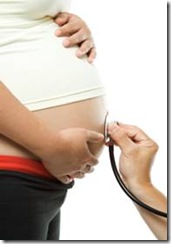St. John’s Wort and menopause symptoms
St John’s wort was compared with a placebo in a double-blind, randomized clinical trial on symptoms and quality of life issues in perimenopausal women. Forty-seven 40 to 65 y.o. perimenopausal women who experienced three or more hot flashes per day were randomized to receive either 900 mg three times daily of a St. John’s wort extract or placebo for 3-months. Hot flash severity and frequency were evaluated and the Menopause-Specific Quality of Life questionnaire was used to evaluate menopause related quality of life.
After 12 weeks, only a small difference was seen favoring St. John’s wort in the frequency of hot flashes. A 30% improvement in 50% of the women was seen in the St. John’s wort group and only 23% in the placebo group. A significant reduction in sleep problems and depression was seen with St. John’s wort and the St. John’s wort group scored significantly better menopause related quality of life.
References
Al-Akoum M, Maunsell E, Verreault R, et al. Effects of Hypericum perforatum (St. John’s wort) on hot flashes and quality of life in perimenopausal women: a randomized pilot trial. Menopause 2009; 16(2):307-314
Folic acid updates for pregnant women
It has been known for a considerable amount of time, that folic acid when given to women planning for pregnancy and during pregnancy, can lower the risk for neural tube defects. Based on the research up to that time, the US Preventive Services Task Force (USPSTF) first published their recommendations in 1996. This has recently been updated and the USPSTF has issued a new statement in May, 2009. Based on the observational evidence and randomized controlled trials published since 1996, the USPSTF found convincing evidence that supplements containing 0.4 to 0.8 mg of folic acid during the preconception period lowers the risk for neural tube defects.[i]
There now appears to be additional benefits for folic acid before conception and during pregnancy, possibly the prevention of cleft lip (BMJ 2007;334:464) and most recently, lowering the rates of severe congenital heart defects. In a Quebec study, investigators observed a drop in the prevalence of severe congenital heart defects after mandatory folic acid fortification of grains. The average prevalence of severe congenital heart defects at birth was 1.64 per 1000 births during the 9 years before the folic acid food fortification began and the rate fell by 6.2% yearly during the seven years studied, after the mandatory fortification.[ii]
Following the recommendation that all women of child bearing age should take a daily supplement containing 0.4 mg to 0.8 mg per day of folic acid is good, safe medicine and perhaps even more beneficial than previously thought.
References
[i] (Woffe T, Takacs-Witkop C, Miller T, Syed S. Folic acid supplementation for the prevention of neural tube defects: An update of the evidence for the U.S. Preventive Services Task Force. May 2009.150; (9): 632-639)
[ii] (Ionescu-Ittu R, et al. Prevalence of severe congenital heart disease after folic acid fortification of grain products: Time trend analysis in Quebec, Canada. BMJ 2009;338:b1673.)



